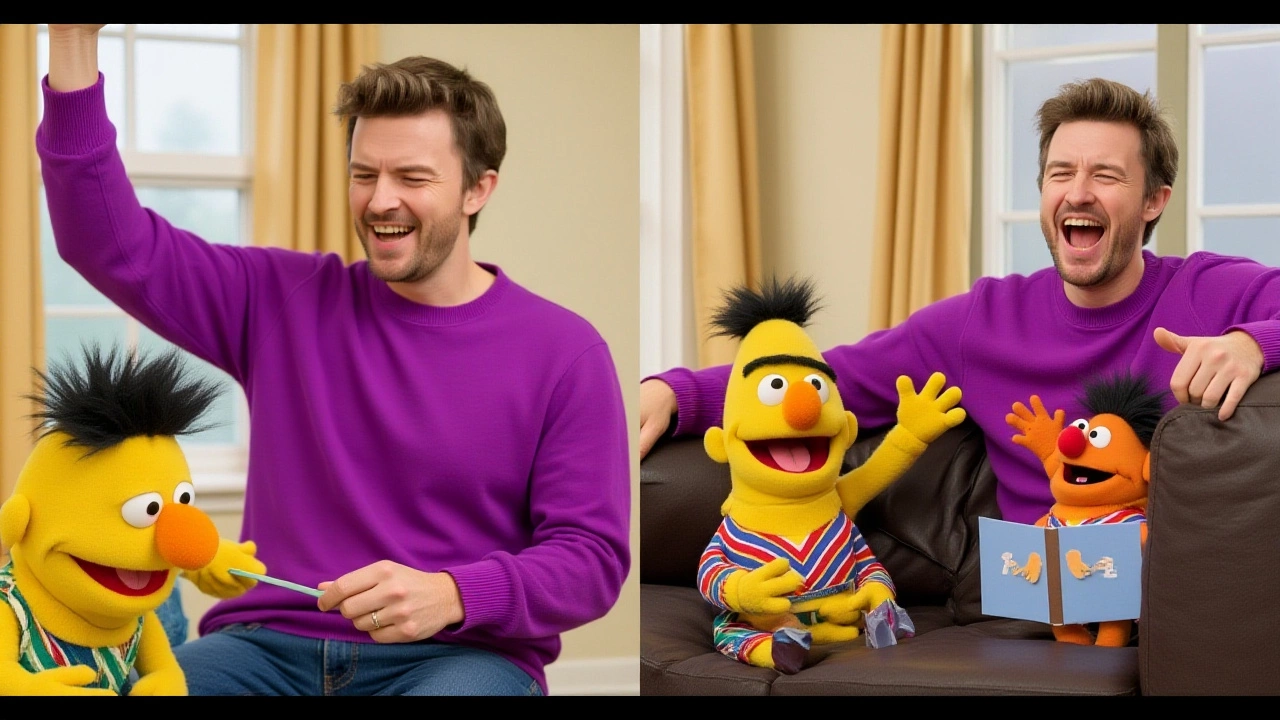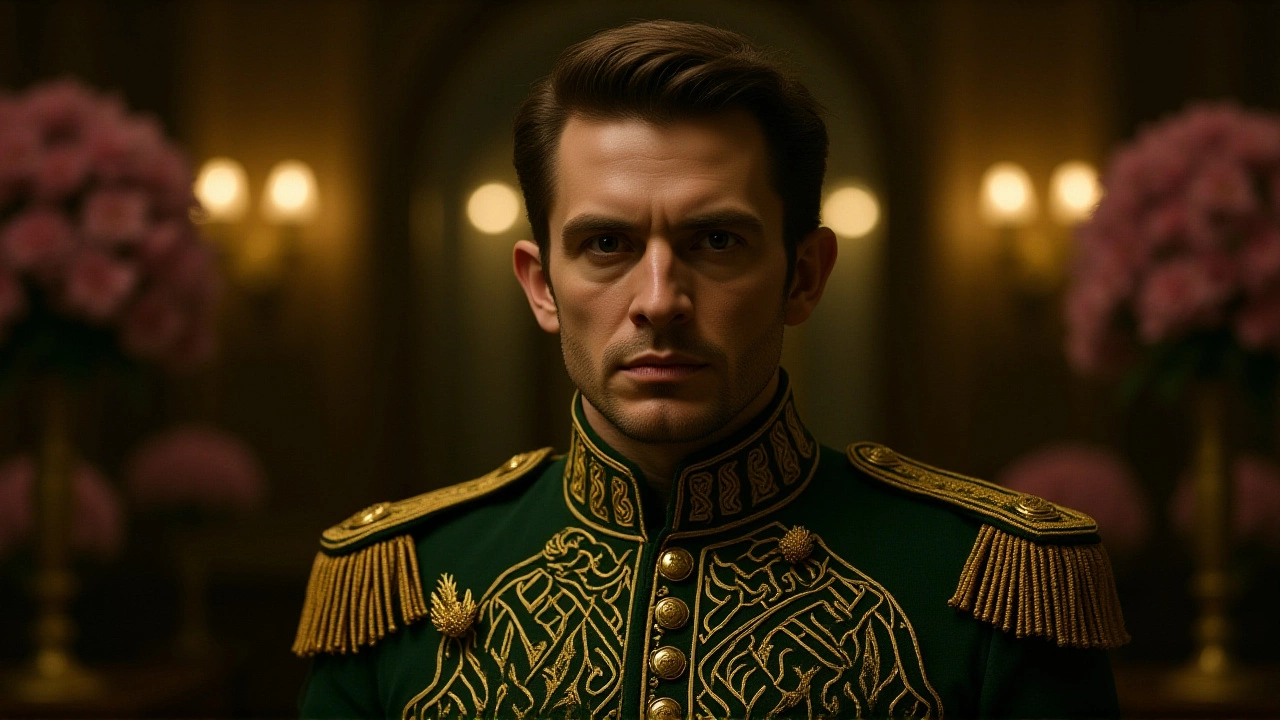When Wicked: For Good hits theaters on November 21, 2025, audiences won’t see a single, pivotal moment that nearly changed everything: a kiss between Fiyero and Glinda. That scene — intimate, emotionally charged, and shot with the kind of lingering close-ups that make hearts race — was cut entirely, not for budget or pacing, but because it made the story too real. As co-screenwriter Dana Fox told Deadline on November 22, 2025, "Seeing that made it too hard to watch him make the choice he makes to be with Elphaba."
Why the Kiss Had to Go
The deleted scene featured Jonathan Bailey as Fiyero and Ariana Grande as Glinda sharing a quiet, tender kiss in a moonlit garden at Shiz University. It wasn’t just a peck. It was the kind of moment that lingers — fingers brushing, breath held, eyes locked. Fox described it as "romantic and beautiful," but also dangerously convincing. The problem? If audiences believed Fiyero and Glinda truly loved each other, then his eventual decision to abandon her for Elphaba (played by Cynthia Erivo) would feel like a betrayal, not a redemption."It was too real that he and Glinda were actually feeling something together," Fox said. And that’s exactly what the filmmakers couldn’t afford.
In the original Broadway musical, Fiyero’s shift from Glinda to Elphaba is framed as awakening — a movement from superficial charm to deep, soul-level connection. But the film version, with its close-ups and emotional realism, threatened to turn that arc into a messy love quadrangle. Audiences might have started rooting for Glinda. They might have blamed Elphaba. And that? That would have broken the film’s delicate moral center.
The Likability Factor
This wasn’t about censorship. It was about empathy. Every major character in Wicked: For Good — even the antagonists — is designed to be sympathetic. Glinda isn’t a villain; she’s a woman clinging to safety in a world that punishes difference. Elphaba isn’t a witch; she’s a rebel fighting for truth. And Fiyero? He’s not a traitor. He’s a man slowly realizing who he’s meant to be."We needed everyone to be likable," Fox explained. "If you start thinking Fiyero was cheating on Glinda, then you start hating him. And if you hate him, you don’t care when he and Elphaba run off together. The whole emotional payoff collapses."
The film’s 137-minute runtime, overseen by director Jon M. Chu (Crazy Rich Asians, In the Heights), was carefully sculpted to preserve that emotional balance. Every cut — even the ones that hurt — served the story’s heartbeat.
What Was Lost — And What Was Gained
Fans of the musical might miss the subtle tension between Fiyero and Glinda in "Thank Goodness" — a song that, in the stage version, drips with unspoken longing. The film’s deleted kiss would’ve made that subtext text. But Fox insists the trade-off was worth it."I don’t think there’s anything that I wish we hadn’t cut," she said. "Everything we cut, I felt we cut for exactly the right reasons."
What remains is a more focused narrative: Glinda’s transformation from popular girl to reluctant queen, Elphaba’s rise as an icon of resistance, and Fiyero’s quiet, painful evolution from playboy to protector. The love triangle still burns — but now, it burns cleanly. No distractions. No moral fog.
And the film’s ending? Even more haunting. As Elphaba whispers in voiceover, "I know she can never know that we’re alive," the line doesn’t just echo grief. It whispers possibility. A door left open. A future waiting.

What’s Next? A Wicked 3?
Fox didn’t just talk about the past — she teased the future. "I would be honored if anyone asked me to be a part of Wicked 3," she said. "That line — 'we’re alive' — it’s a call. Someone’s going to answer it."Director Jon M. Chu has already hinted at more footage from the first film’s cut — including an eight-and-a-half-minute reel of deleted scenes from Wicked (2024), such as Elphaba and Fiyero freeing the lion cub. But the Fiyero-Glinda kiss? That’s still in the vault. Fox wouldn’t confirm whether it’ll surface on home release. "I don’t know," she admitted. "But if it does… it’ll be for the fans who want to see what almost was."
For now, the version audiences will see on November 21, 2025 is the one that makes the most emotional sense. No messy kisses. No confused loyalties. Just three souls, caught between magic and morality, choosing love — not because it’s easy, but because it’s true.
Frequently Asked Questions
Why did the filmmakers remove the Fiyero-Glinda kiss instead of rewriting the scene?
The filmmakers felt the emotional weight of the kiss was too authentic — it made Fiyero’s choice to leave Glinda feel like a betrayal rather than a growth. Rewriting it wouldn’t have softened the impact; it would’ve forced the characters into unnatural behavior. Cutting it preserved the integrity of Fiyero’s arc and kept audience sympathy aligned with Elphaba’s journey.
How does this change affect Glinda’s character in the film?
Without the kiss, Glinda’s emotional arc becomes more about self-discovery than romantic loss. Her pain comes from realizing she’s been performing happiness, not from losing a lover. This aligns her more closely with the musical’s theme of societal pressure, making her transformation into a powerful, independent leader feel earned — not tragic.
Is there any chance the deleted scene will be released later?
Co-screenwriter Dana Fox has not confirmed whether the scene will appear on home video or streaming releases. While director Jon M. Chu previously released deleted scenes from the first film, the Fiyero-Glinda kiss was cut for narrative, not technical reasons — making its release less likely. If it does appear, it’ll likely be as a bonus feature for die-hard fans.
What does Elphaba’s final voiceover line mean for a potential third film?
When Elphaba says, "I know she can never know that we’re alive," she’s not just mourning lost love — she’s hinting at hidden survival. That line, as Fox noted, is a direct invitation for a sequel: What if Glinda discovers they’re still alive? What if their daughter — hinted at in the novel — becomes a new protagonist? The door is wide open, and the filmmakers know it.
How does this decision compare to other film adaptations of musicals?
Many musical adaptations — like Les Misérables (2012) cutting "I Dreamed a Dream"’s reprise or Into the Woods (2014) simplifying the Baker’s Wife’s arc — have trimmed emotional complexity for pacing. But Wicked: For Good is unusual: it cut a romantic moment not to shorten the film, but to deepen the moral clarity. That’s rare in modern musical cinema.
Who wrote the original novel that inspired Wicked?
The original 1995 novel, Wicked: The Life and Times of the Wicked Witch of the West, was written by Gregory Maguire. His reimagining of L. Frank Baum’s Oz characters as complex, morally ambiguous figures laid the foundation for both the Broadway musical and the film adaptations, including Wicked: For Good.
